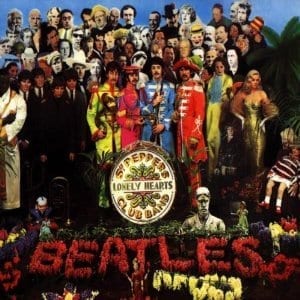
It is probably wise to take Thiel’s idea of an end to aging (or at least its radical postponement) seriously.
It does not seem that long ago that the Beatles could plausibly portray geriatric redundancy as beginning at an age sometimes referred to as young these days. “Will you still need me,” they asked, “Will you still feed me, when I’m sixty-four?”
That was, in fact, a while back — in 1967. But such is the mist cast by advancing years that it is hard to believe we stand close to a half-century from the Sgt. Pepper’s Lonely Hearts Club Band album. Since then life spans have grown dramatically in an acceleration of the process that has seen longevity double in developed countries over the past 150 years. In 1850, half of England’s population was dead by 45. Today, according to Sarah Harper, a British gerontologist, half the English population is alive at 85.
But these advances brought on by antibiotics, vaccination programs, improved sanitation and better medicine (not to mention dietary supplements and the treadmill) are peanuts compared to what may lie in store. The brave new world of regenerative medicine is upon us. This is the term of art for the various techniques and technologies (including cell therapy, gene therapy and tissue engineering) that will, its advocates say, allow the body to slow, halt or even reverse aging by enabling the regeneration and repair of damaged organs, cells and tissues. Talk of routinely living to 120 or even 200 no longer lies in the realm of cranks and fantasists.
Indeed, the buzz around radical life extension is such that the dot-com gurus who brought us the likes of Google and PayPal now find themselves laser-focused on an Age of Longevity, as if transforming our lives was not enough whereas doubling them through moonshot thinking would be an incontrovertible contribution to human progress. Connectivity was O.K., but conjuring super-centenarians will be better. Larry Page, the chief executive of Google, and Peter Thiel, the Silicon Valley billionaire, early investor in Facebook and co-founder of PayPal, are among those who, in separate ventures, have aging in their cross hairs.
“If people think they are going to die, it is demotivating,” Thiel told me. “The idea of immortality is motivational.” He described his ideas as “180 degrees the opposite” of Steve Jobs’s, who once said: “Remembering that you are going to die is the best way I know to avoid the trap of thinking you have something to lose. You are already naked. There is no reason not to follow your heart.”
It is probably wise to take Thiel’s idea of an end to aging (or at least its radical postponement) seriously.
The Latest on: Longevity
[google_news title=”” keyword=”Longevity” num_posts=”10″ blurb_length=”0″ show_thumb=”left”]
via Google News
The Latest on: Longevity
- Meet the little people whose bodies may hold a key to longevityon April 30, 2024 at 8:00 am
A rare genetic condition that causes short stature may also provide protection from diabetes, heart disease and other illnesses, a new study says.
- Best jobs for brain longevity: 6 mentally stimulating jobs to prevent Alzheimer's, dementiaon April 30, 2024 at 7:58 am
Being in a mentally-taxing job isn't that bad after all. A new research says, it could save you from cognitive decline and dementia. There are certain jobs that are more mentally stimulating than ...
- Do Meme Coins Have Longevity? Analysts Weigh Inon April 30, 2024 at 3:24 am
Analysts at Needham & Company, a prominent financial research firm, have identified a substantial uptick in the popularity and influence of meme coins in the crypto sphere. This surge in interest has ...
- The Easiest Way To Get More Longevity-Promoting Flavonols into Your Daily Dieton April 29, 2024 at 12:56 pm
A prospective cohort study by the National Health and Nutrition Examination Survey (NHANES) program, which collected data from nearly 12,000 adults, found that a higher intake of flavonols was ...
- Why climbing stairs improves longevity, heart healthon April 29, 2024 at 11:55 am
Studies suggest that this "vertical exercise" has big benefits for cardiovascular and respiratory health. How many stairs make a difference?
- I’m a longevity expert — I swear by these 5 supplements for agingon April 29, 2024 at 11:19 am
Getting older can be a tough pill to swallow, but according to a longevity expert, the right supplements can ease the process.
- A longevity researcher is facing backlash for claiming to 'reverse aging.' Scientists say there's no consensus on what it means.on April 28, 2024 at 2:43 pm
Dr. David Sinclair is at the center of a scientific debate on what it means to reverse aging, the Wall Street Journal reported.
- A ‘longevity revolution’ is coming. Here’s how those over 100 are making the most of their liveson April 28, 2024 at 3:00 am
Life at it’s essence is about time and by 2050, nearly 3.7 million people are expected to live up to 100. What can we do to get the most out of our bonus years?
- A 110-year-old man says he's never had back pain and still drives his car every day. Here are his 6 longevity tips.on April 27, 2024 at 4:26 am
Vincent Dransfield, 110, lives alone and drives his car every day. He credits movement, milk, and strong relationships with giving him longevity.
- Climbing stairs may improve heart health, promote longevityon April 26, 2024 at 2:11 am
Researchers say climbing stairs instead of taking an elevator improves heart health by combining aerobic with strength training exercise ...
via Bing News










